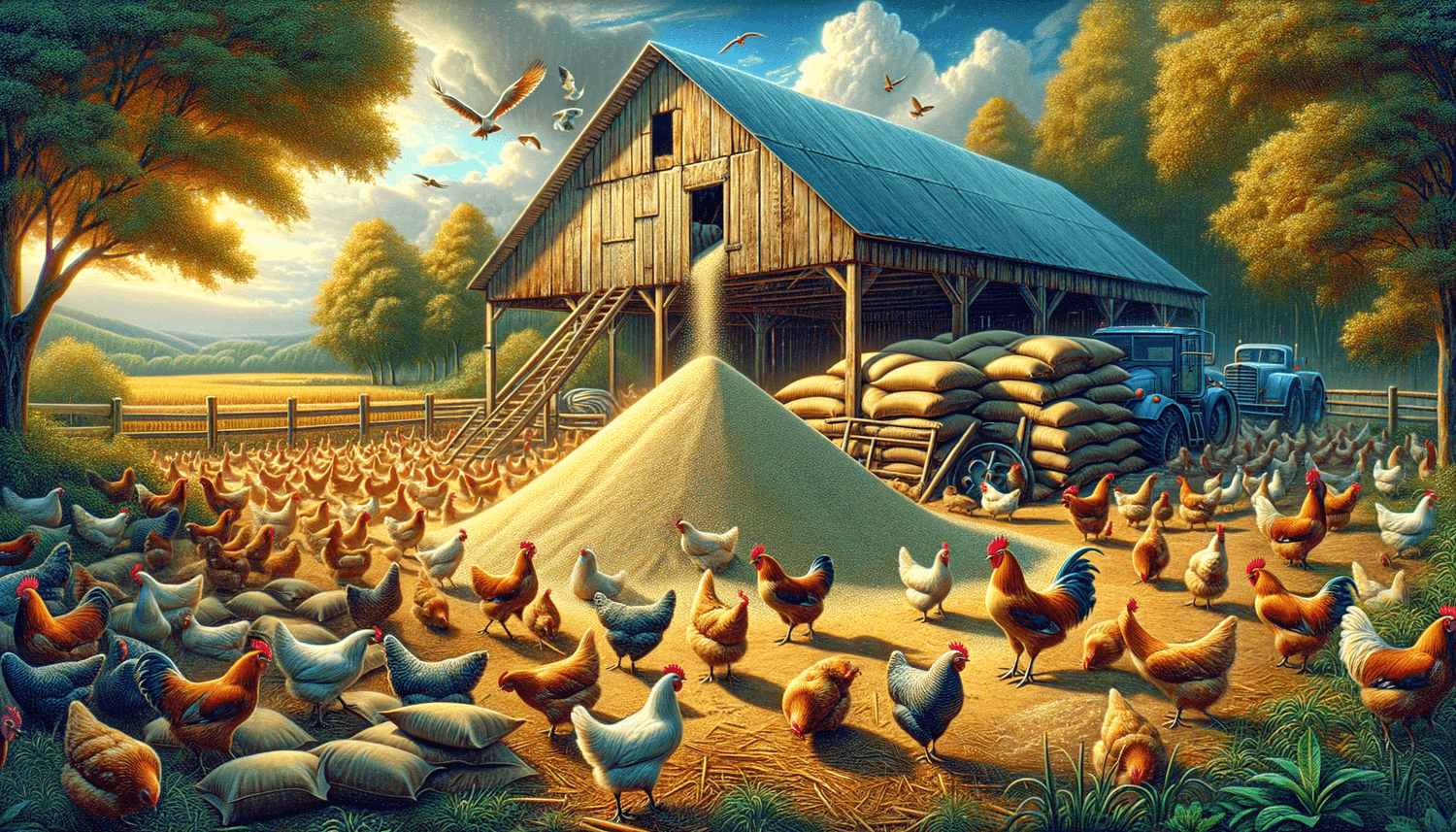Cluck-cluck! Are you a bit flustered about whether your feathered friends can snack on diatomaceous earth or not? Well, you’ve come to the right place! In this fun, informative blog post, we’ll egg-splore the nutty notion that has all the chicken keepers scratching their heads. Whether it’ll add a nutritional punch to their already balanced diet, offer any benefits or risks to their health, or figure out the proper preparation of this intriguing food item – we’ve got you covered. Get ready to flock together as we dish the dirt on diatomaceous earth for your chickens!
Can chickens eat diatomaceous earth?
Yes, chickens can eat diatomaceous earth, and it is safe for them. Diatomaceous earth is a natural, non-toxic substance made from crushed fossils of aquatic organisms. It is often used as an effective dewormer and pesticide in chicken coops, helping to keep your flock healthy and pest-free. When consumed in moderation, it poses no harm to your chickens, and some even claim it has added health benefits.
A balanced diet for your clucking companions
Just like us humans, chickens need a balanced diet to thrive and stay healthy. It’s crucial to provide the right mix of nutrients in their daily meals. What exactly should be on their menu? The main course for your lovely feathered friends should be a high-quality chicken feed, which covers around 80-90% of their daily nutritional requirements.
Chicken feed is specially formulated to cater to the specific needs of your chickens, and it’s an essential component of their well-being. The remaining 10-20% of their diet can consist of scrumptious treats that your chickens may adore. What could be more delightful than introducing fresh fruits and veggies to your chickens – a healthy and fun way to brighten up their day? Just remember, moderation is key, and treats should be complimentary to their chicken feed, not a substitute for it.
Nutritional value of diatomaceous earth for chickens.
While diatomaceous earth is safe to feed to chickens, it doesn’t offer significant nutritional value. It is primarily a silica-based product, made from crushed fossils of tiny, aquatic organisms called diatoms. As such, it lacks substantial vitamins and minerals that a healthy chicken diet would typically require.
However, feeding diatomaceous earth to chickens may bring other benefits to the table. Its most noteworthy advantage is its function as a natural dewormer and internal parasite control agent for chickens. Small amounts of diatomaceous earth mixed with their feed can work as an effective preventative measure, contributing to overall poultry health. Additionally, it helps boost their natural immunity due to its anti-bacterial, anti-viral, and anti-fungal properties, providing your chickens with an extra layer of protection against diseases and infections.
Another notable perk of diatomaceous earth is its ability to act as a natural drying agent. Amending feed with DE can help chickens excrete drier droppings, thereby maintaining a cleaner and more hygienic environment within the coop. However, it is crucial to mention that the primary benefits of diatomaceous earth relate to its pest control properties and general health support, rather than direct nutritional gains. It should never substitute the need for a well-balanced, nutrient-rich diet to maintain your flock’s vitality and well-being.
Nutrition table of diatomaceous earth for chickens.
| Information | Description |
|---|---|
| Nutritional Value | Minimal to none, primarily silica-based |
| Suggested Serving Size | Up to 2% of the total weight of their feed |
| Safe Feeding Practices | Mix with chicken feed in moderation |
| Preparation | No additional preparation needed; mix directly into feed |
| Potential Risks | Inhalation hazard, avoid direct contact with eyes and respiratory passages |
| Hydration | Acts as a natural drying agent, may help chickens excrete drier droppings |
| Digestion | Assists digestion, may aid as a natural dewormer and internal parasite control |
| Seasonal Availability | Year-round availability |
| Other Benefits | Anti-bacterial, anti-viral, and anti-fungal properties help improve overall chicken health |
Tips for incorporating diatomaceous earth into your flock’s diet
Armed with the knowledge of the benefits of diatomaceous earth, you may be excited to start incorporating it into your flock’s diet. To effectively use this unique substance, consider following these helpful tips:
1. Only use food-grade diatomaceous earth (DE) with your chickens. Avoid using pool-grade or filter-grade DE, as these are chemically treated and can be toxic to your feathered friends.
2. Begin by slowly introducing DE into your chickens’ feed, preferably in small amounts. Monitor their reaction and adjust the quantity accordingly. A common suggestion is to mix around 2% of DE by weight into the chicken feed. Always refrain from using too much, as it can be drying and create respiratory issues for your flock.
3. In addition to mixing DE into their feed, you can also sprinkle it onto the floor of the chicken coop or nesting boxes. This will help prevent external parasites like mites, lice, and fleas from making a home in your coop.
Staying safe while handling diatomaceous earth
While DE is an excellent addition to your chicken care arsenal, it’s crucial to handle it safely. The fine, powdery substance can pose a respiratory hazard if accidentally inhaled. So, always use a dust mask when working with diatomaceous earth to reduce the risk of inhaling any particles. If sprinkling it in the coop, wait a few moments for dust to settle before allowing your chickens to return.
Remember, chickens are resilient and resourceful creatures. Still, it’s up to you to maintain consistent care and attention to their dietary needs, living conditions, and overall well-being. By doing so, you’ll nurture a happy and healthy flock for years to come. Happy chicken keeping!

















